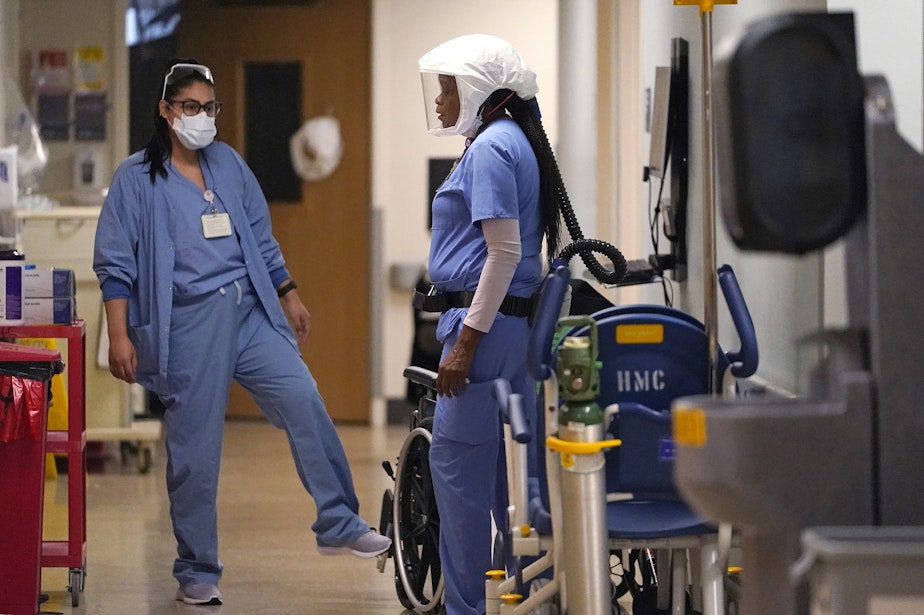Marching steadily toward the somber milestone — one million Covid-19 deaths

Several news outlets' are already reporting that the United States has passed the grim marker of one million Covid-19 deaths. The CDC's numbers have the nation just shy of that.
Either way, the pandemic's toll is hard to fathom. KUOW reporters Kate Walters and Ruby de Luna have been spending time learning about who we've lost to Covid here in Washington state.
While Washington state has a relatively low death count compared to the overall United States, our total number of 12,797 (as of May 10) is still equivalent to the entire population of Enumclaw. Each of those nearly 13,000 deaths is a person. And once numbers get as high as one million, it can be hard to separate the statistics from the people.
Kate Walters has been covering Covid-19, and talked to state epidemiologist, Dr. Scott Lindquist. He shared four things that work to help protect everyone: Staying up to date with vaccines and boosters, wearing masks in public indoor settings, staying away from big crowds when cases are rising, and using rapid tests.
There is also the issue of the disproportionate impact that this pandemic has had on historically marginalized communities and those already facing structural racism and systemic oppression. State data show the Native Hawaiian and Pacific Islander populations have Covid death rates that are about five times higher than white and Asian populations. We also know that Black populations in Washington have death rates about twice as high as white populations.
Ruby de Luna was one of the reporters who worked on KUOW's obituary program in the early days of the pandemic.
"What made these deaths doubly devastating for families was not being able to physically gather with loved ones to mourn and support each other," she said. "It was risky, especially when vaccines weren’t available yet. While some families resorted to Zoom gatherings, it wasn’t the same. The idea for the obits project came out of that — to provide surviving members a space to remember loved ones and the impacts they had on the family and community."






